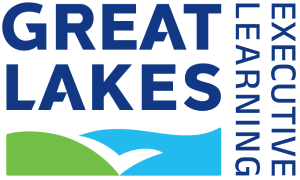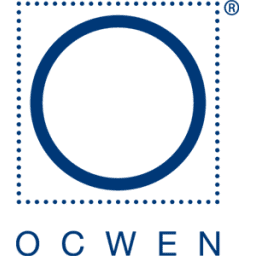The Post Graduate Program in Digital Marketing from Great Lakes Executive Learning will teach you cutting-edge Digital Marketing skills and strategies required in the modern workplace from experienced industry professionals. Develop the business acumen to solve real-life problems by working on capstone projects and getting a certificate from Great Lakes Executive Learning, one of the top 10 institutes in India.
Pre-Work Module
The Strategic Digital Marketing course begins with the Pre-Work section to familiarize you with the basics of Digital Marketing. Here, you will learn about the marketing frameworks, such as the Marketing Mix for Products and Services (4Ps, 4Cs, and 7Ps), to reach the target audience. You will also learn about marketing models like the BCG Matrix, Ansoff's Grid, and the STP Model to assess portfolios and plan strategically.
Get familiar with the various models of consumer behavior, like the Pavlovian model, the Howard Seth model, the Sociological model, and more. Know the elements that influence consumer behavior and learn how to analyze competitive markets. This module aims at preparing you for the further course.
Module 1: Digital Marketing Foundations
This module will help you understand the Digital Marketing Framework and Content Marketing. The sub-modules focus on familiarizing the learners with the Customer’s Digital Journey and how to make the most of the information. Go in-depth with the Buyer persona and Digital Marketing Funnel. The second half of the module will focus on Content Marketing. Uncover the basic tenets of Content Marketing, 3H Content Theory, Brand Voice, Content Plan, Content Audit, and a lot more that aid in crafting meaningful content.
Digital Marketing Framework
- This Digital Marketing Framework course allows learners to master the Customer’s Digital Journey and how brands can use it for their marketing efforts. Become familiar with the different types of media- Paid, Shared, Owned and Earned, Buyer persona, Digital Marketing funnel, and the challenges digital marketers face with these.
As a part of the course, you will get a chance to learn Design Thinking (a self-paced module), design thinking methods, mindset, modes, and lenses through various case studies.
Content Marketing
- The Content Marketing course allows learners to master storytelling, understand different types of content, develop a brand voice, analyze/compare content across regions & timeframes, audit content and create a content marketing plan. After completing this course, you will be able to understand the importance of consumer-generated content and will be able to create content plans as per the need of the hour.
A UI/UX module (a self-paced module) is a part of this content marketing course, where you will be introduced to the UI/UX, its usability for digital marketers, and good UX practices.
Module 2: Building Digital Footprint
Get introduced to this module's Primary and Secondary digital properties. Learn to build websites, understand different website design concepts, and understand how to add functionalities to your websites, like e-commerce features, SEO features, creating and embedding subscription forms, chatbots, etc., by installing relevant plugins.
Further in the module, learn to develop Secondary digital properties, i.e., Facebook, LinkedIn, YouTube, etc., and to integrate them with the website.
Developing Primary Digital Property (Website)
- In this part of the module, you will be introduced to the fundamentals of digital property and the basics that will help develop your business's primary digital property. Get a walkthrough of registering a domain and building a website using various platforms, like Godaddy and WordPress. You will also understand how to use MailChimp for your business. Learn to set up Google Analytics, Google Tag Manager, Google Ads, and Google Webmaster Tool.
Developing Secondary Digital Properties
- In this part of the module, you will get an introduction to various tools, platforms, and their usage for developing Secondary Digital properties. Learn to use Facebook Conversion Tracking and Facebook Pixel LinkedIn Insights, YouTube Content Studio, and Google AdSense will help you build a Digital Footprint of your brand.
Module 3: Performance Marketing / Marketing Your Digital Presence
Based on Performance Marketing, this module will focus on teaching Paid Marketing and Social Brand Management. Learners will understand and work on marketing their digital properties in this module. They will work on building their digital presence and understand how to run various campaigns on Google Ads, Facebook, LinkedIn, YouTube, Email, etc.
Paid Marketing
- This paid marketing course will begin with an explanation of Digital Marketing and its channels. The learners will get an overview of paid marketing and the various metrics, payment currencies, and channels used in the digital marketing. Get a walkthrough of Google Paid Marketing and tools like Google Keyword Planner, Google Ads, Google Trends, and a complete Google universe. Learn to plan the Google Paid Marketing campaigns using various tools, research, planning, and setting up the paid campaigns. The module is vast and covers a thorough understanding of paid marketing concepts.
Social Brand Management
- Dive into the exciting world of Social Brand Management and get practical insights on tools like Facebook Business Manager, Instagram Ads, Facebook Insights, YouTube Ads, LinkedIn Ads, and more. By the end of this module, you will be able to grasp a robust understanding of marking the Digital presence of your brand. You will be able to understand brand building and management through various social media tools.
Email and Affiliate Marketing
- This module teaches you to use Email and Affiliate marketing for your paid marketing campaigns. It starts with an introduction to email marketing and automation and then discusses the evaluation of the email marketing campaigns.
Further, in the module, you will understand the Affiliate ecosystem, affiliate strategy, affiliate campaign tracking process, and tools to make it a success for the business. Also, learn to manage the Affiliate partnerships that can expand the company’s reach and increase revenue through increased exposure. Acquire an understanding of using the tools like Mailchimp that help you manage your email campaigns.
Module 4- Integrated Digital Marketing
This module teaches the basics of Integrated Digital Marketing, including concepts like On-page and Off-page SEO, PR Model, Link Building, Mobile Marketing, WhatsApp Marketing, Apps Marketing, etc. Gain Hands-on experience with the tools like Screaming Frog, Google Search Console, Mozbar, Yoast SEO, Similar Web, etc., that will help learners understand Search Engine Optimization and Mobile Marketing from the basics to depth. Learn about the long-term marketing strategy for improving a website’s visibility in Google and other global search engines. Also, get familiar with the mobile ecosystem used for marketing.
Search Engine Optimization
- This part of the module focuses on SEO basics. You will be introduced to the factors that affect the ranking of the webpage and the types of SEO. Learn about SEO audits that improve the site’s search performance and the role of content marketing for SEO success. The module is an opportunity to learn various tools like HubSpot Website Grader, Screaming Frog, Google Search Console, Google Keyword Planner, Mozbar, GTMetrix, Yoast SEO, etc.
Mobile Marketing
- Going further in Integrated Digital Marketing, you will be introduced to the mobile ecosystem. This module will help you understand Voice Based marketing, SMS marketing, Whatsapp marketing, etc., and how they work. Learn the types of push notifications, deep linking, deferred deep linking, and URL shorteners that play a major role in mobile marketing. Going forward, learn to manage and analyze mobile marketing campaigns using various tools like Firebase, AppAnnie, SimilarWeb, Google Trends, etc.
Module 5: Web Analytics / Marketing Experimentation
This module focuses on Web Analytics/ Marketing Experimentation. Get introduced to concepts like CRM, Customer Retention, Customer Equity, and different Customer metrics in the self-paced module. You will dive deep into Customer Acquisition, Retention, and Engagement strategies. The other part of the module teaches Web Analytics, a business research tool used to measure marketing effectiveness. You will become familiar with setting up Google Analytics for a website, the metrics in Google Analytics, and its reports. You will try your hands on Google Analytics Audience Reports, Acquisition Reports, and Conversions Reports.
Web Analytics
- This part of the module focuses on Web Analytics, the measurement, collection, analysis, and reporting of web data to understand and optimise web usage. You will learn to set up and integrate Google Analytics for a website. Understand the data collection process on websites, applications, or browsers. Become familiar with various metrics in Google Analytics, like conversion rates, website traffic, and audience behavior. Get your hands-on sessions with Google Analytics audience reports, acquisition reports, behavior reports, and conversion reports.
User Retention and Engagement
- The next part of the module is User Retention and Engagement. It is a self-paced module that introduces learners to CRM, Customer service, Sales profile models, Customer Retention, Customer Equity and Customer Metrics. You will understand several strategies based on customer acquisition, retention, and engagement that help businesses acquire new customers, convert them into paying customers, retain them, and engage them with the help of various promotional methods and events.
Measuring Marketing effectiveness
- This module deals with several ways to measure marketing effectiveness through surveys, focus groups, feedback, etc. This self-paced module will shed light on the mechanics of acquisition strategies, analysis of Customer Lifetime Value, customer relationships, and more that will help you evaluate the effectiveness of the marketing campaigns.
Module 6: Campaign Management
Get acquainted with this module's entire ecosystem of Campaign Management. Know about the Programmatic Media Buying System and its components. The module highlights how digital contributes to a brand, customer funnels, and Customer Journey Mapping. Understand the Key Performance Indicators of media, determine metrics, and measure the campaign. You will also get an introduction to Influencer Marketing Campaigns for building brand awareness and business growth.
Learn to make the most of your influencer marketing campaign and get tips for finding the right influencers for your next campaign. This module will teach you to harness the expertise of digital marketing platforms to fine-tune the campaign's effectiveness. Learn to optimize the campaigns to improve ROIs.
Module 7: Capstone Project
This module is based on the capstone project, a culmination of a student's academic experience. The module will let students apply their learning and knowledge gained throughout the course to a case study-based project. A capstone project assists teams in integrating and applying the knowledge, skills, and abilities gained throughout the program to solve a marketing-focused business problem. It is a way of measuring and understanding a team’s competency in digital marketing and strategy. The capstone project focuses on getting insights using data and observation and devising a comprehensive marketing strategy and plan, the implementation of which will significantly improve the business.
Digital Marketing Certifications
This course will equip you to clear all industry-relevant certifications offered by Facebook, Google, HubSpot, and Hootsuite. The course has curated a list of relevant & recognized Digital Marketing Certifications on which the learners will need to work on the following:
The following is the list of Certifications:
- Meta Blueprint Certification:
- Learners who pass the digital marketing course with their grades within specific eligibility criteria get a free Meta Blueprint Certification Voucher 100-101(Meta Certified Digital Marketing Associate). The Blueprint certification is the highest accreditation offered by Meta. Being Blueprint certified can give learners an advantage over non-certified individuals when they apply for a career that fits their background.
- Google Ads Certifications:
- Google Ads Display Certification
- Google Ads Search Certification
- Google Ads Measurement Certification
- Google Ads Video Certification
- Shopping Ads Certification
- Google Ads Apps Certification
- Google Analytics Certification
- Hubspot Certifications
- Email Marketing Certification
- Content Marketing Certification
These certifications, provided by Google (Ads, Analytics) and Hubspot (Email and Content), will add to learners' knowledge and provide a profound understanding of various Digital Marketing concepts covered in the Course. In terms of being industry-ready, it will give students a competitive advantage in the job market.
The learners are strongly encouraged to pursue these postgraduate certificates in digital marketing because they will enhance their learning and overall profile. They will be able to add them to their resume and showcase them on their LinkedIn profile.
Career Assistance: Resume Building, Mock Interviews, 1: 1 Mentorship
We will help learners with resume building and conduct mock interviews and 1:1 personalized mentorship sessions from industry experts, which will enhance the learner’s confidence and boost their skills to start the digital marketing career. Doubt solving sessions will be organized, upon request, for queries related to DM Certificates. Guidance to access the platforms and all other details will be provided by the program office.
Great Lakes Executive Learning Certificate
Get a Great Lakes Executive Learning Certificate to set yourself apart from the competition. Our main aim is to make our learners ready to get the best jobs.












 and more...
and more...

























 View Experience
View Experience















































